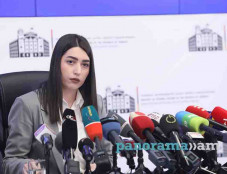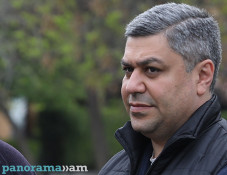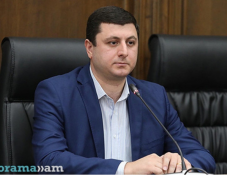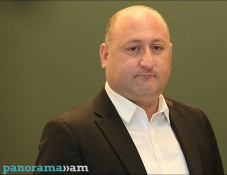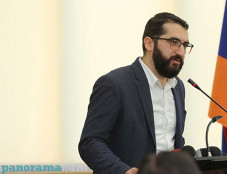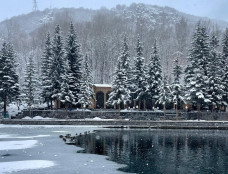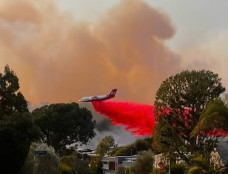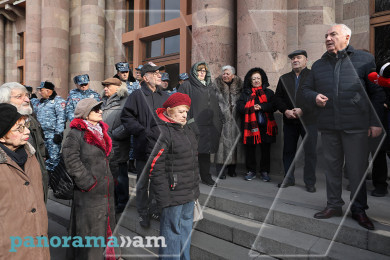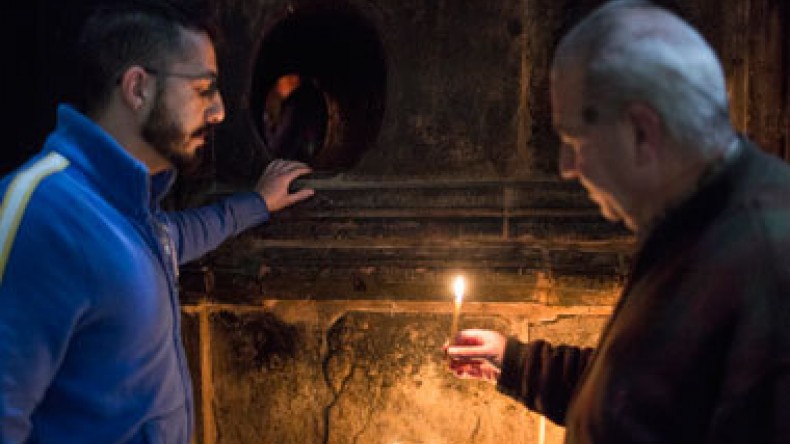
Urging recognition, Jerusalem Armenians mark 100th anniversary of genocide
Thursday evening at 6:15 p.m., church bells will peal over the Old City of Jerusalem, echoing through its ancient stone alleyways. The bells from 18 churches will ring 100 times in succession, one toll for each year since the Armenian Genocide, which started on April 24, 1915, the Times of Israel reports.
Armenians around the world will be marking the centennial anniversary of the genocide, when the Ottomans killed 1.5 million Armenians during WWI. Israel’s Armenian population has been planning events throughout the year to mark the centennial, including concerts, lectures, documentary screenings, and special religious masses.
But the evening of April 23 through April 24 is the central day of mourning, with processions, candlelight vigils, and solemn ceremonies.
On Thursday night after the bells go silent, thousands of Armenians will march with torches through the Old City, where Armenian Christians have lived since the 4th century.
“We are fighting two wars in parallel,” said Kevork Nalbandian, a lawyer and social worker in the Old City who is on the planning committee for the 100th anniversary in Jerusalem. “One war is to guard the memory of the Armenian genocide, to ensure that the memories of what happened are passed to our children and the younger generations. The second war is for the international awareness of this pain. We want the world to recognize this.”
This plea takes on outsized importance in Israel. “Israel is a country that was founded because so many of the citizens were survivors or connected [to the Holocaust],” said Father Koryoun Bahdasaryan, a priest originally from Armenia who has lived in Jerusalem for 20 years.
“How can you expect other countries to recognize your Holocaust when you yourself refuse to recognize the first genocide [of the 20th century], the genocide of the Armenian people?” asked Nalbandian.
In the domed living room of Nalbandian’s stone apartment in the Old City, he keeps a framed picture of a quote he photographed at the Holocaust museum in Washington, DC. The quote is from August 22, 1939, a week before Hitler invaded Poland. “I have issued the command — and I’ll have anybody who utters but one word of criticism executed by a firing squad — that our war aim does not consist in reaching certain lines, but in the physical destruction of the enemy,” Hitler said in a speech at Obersalzberg to his top officers, rationalizing his decision to begin an ethnic cleansing campaign against the Poles. “Who, after all, speaks today of the annihilation of the Armenians?”
“Twenty-two years after [the Armenian genocide] happened, the world forgot,” Nalbandian said. “Hitler harnessed this power of the world forgetting, and he used it to build everything. He used the same tools and developed them further. Instead of taking them to the desert, he used gas chambers, but everything else was the same, like the death marches.”
“If you want to be the moral standard and want other countries to follow, that’s fine,” Nalbandian added. “But then when you take up that torch of morality and march forward, it’s on you as well. There’s no exemption.”
For the first time, Israel is sending a delegation of two MKs to the official memorial service in Yerevan, the capital of Armenia. MKs Nachman Shai (Zionist Union) and Anat Berko (Likud) will travel to Armenia after Israel was formally invited to send an official delegation.
Both Nalbandian and Father Bahdasaryan are incensed when politicians utilize the threat of recognizing the Armenian Genocide as a diplomatic tool against Turkey.
“This is all politics,” said Bahdasaryan. “When they’re politicians they say they will support [resolutions recognizing it as genocide] but once they’re presidents they don’t write their own speeches.”
Newsfeed
Videos






